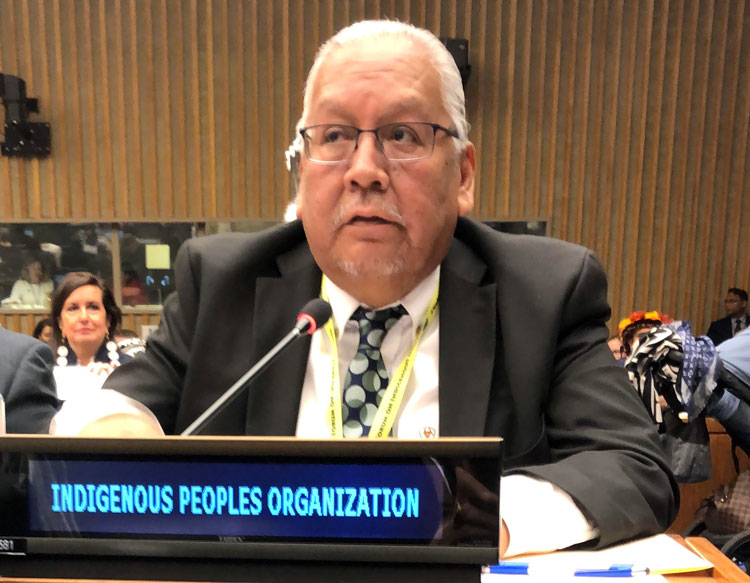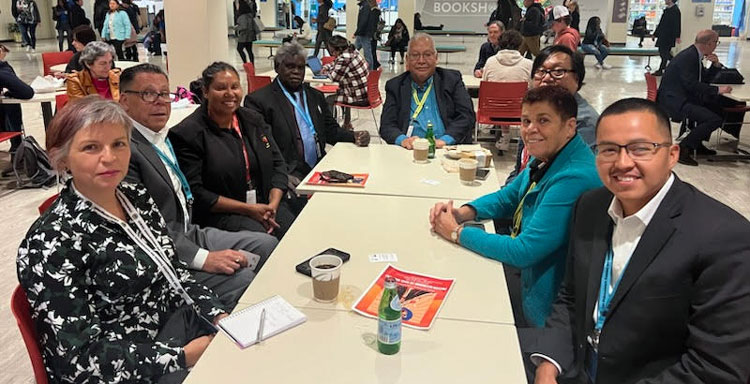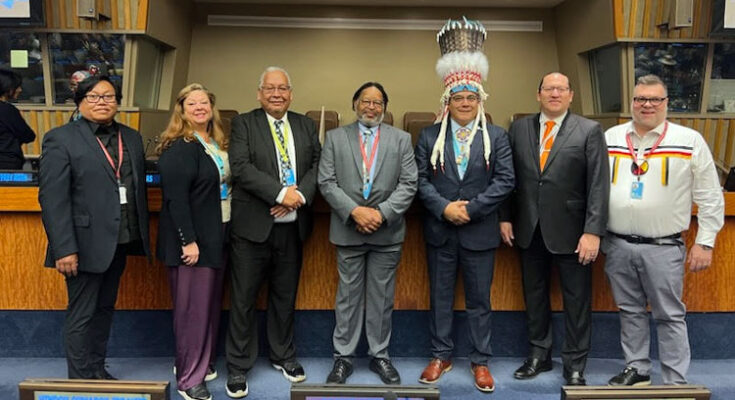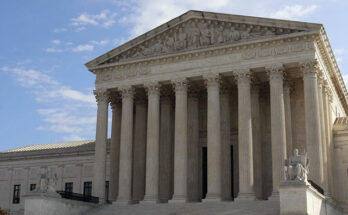Contributed Photo: San Carlos Apache Tribal Chairman Terry Rambler, Vice Chairman Etpison, and other tribal leaders attended Tuesday’s United Nations meeting.
Contributed Article/Courtesy San Carlos Apache Tribe
SAN CARLOS APACHE RESERVATION — San Carlos Apache Tribe Chairman Terry Rambler appeared before the United Nations Permanent Forum on Indigenous Issues on Tuesday, April 18, and urged the U.N. to call on the United States to protect sacred Indigenous sites including Chi’chil Bildagoteel, also known as Oak Flat, from impending destruction.
“I request the United Nations Permanent Forum call on all (member) States to affirmatively protect Indigenous Peoples’ sacred sites under the mandate of culture, environment, health, and human rights,” Chairman Rambler said in a speech before the U.N. forum.
The United States, Chairman Rambler said, plans to give Oak Flat to Resolution Copper, LLC, a joint venture of two foreign-based mining giants, Rio Tinto, and BHP. Resolution plans to develop one of the largest copper mines in the world that will destroy Oak Flat. Resolution intends to mine 7,000 feet beneath Oak Flat, resulting in a crater two miles wide and 1,000 feet deep, obliterating Oak Flat.
In 2014, the U.S. Congress passed an amendment in a massive defense-spending bill that will give Oak Flat to Resolution Copper upon completion of environmental studies regardless of the cultural and environmental damage the mine will inflict. The U.S. Justice Department said last month that it expects to issue the environmental report needed to give the land to Resolution later this summer.

“Oak Flat is a holy site, an area of irreplaceable beauty akin to a church, no different than the Wailing Wall, Temple Mount, Australia’s Juukan Gorge, or Mecca’s Kaaba,” Chairman Rambler said. “Apache people have lived, prayed, and died at Oak Flat from time immemorial.”
Oak Flat is listed on the National Register of Historic Places as a Traditional Cultural Property. Oak Flat is a place where Apaches go to pray, collect traditional foods, gather medicines, hold traditional ceremonies, collect ceremonial items and seek and obtain personal peace and cleansing. Apaches’ deep spiritual ties are inexorably connected to the landscape and cannot be replaced if the site is destroyed.

“By violating the rights of Apaches to practice our religion and maintain our spiritual health and well-being, the United States is failing to comply with international standards incumbent on them as signatories of treaties and declarations that protect these fundamental human rights,” Chairman Rambler said.
Below is a full transcript of Chairman Rambler’s speech.







